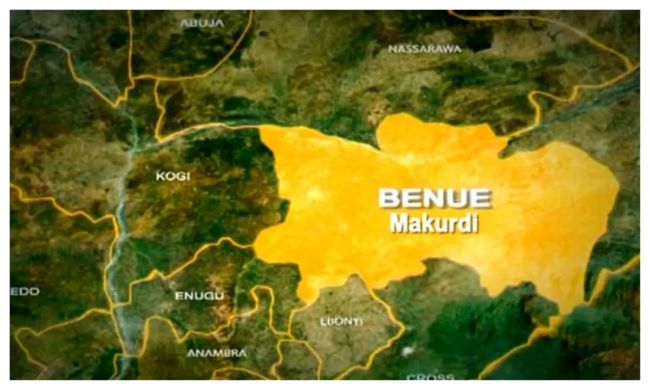Inside the Yelwata Carnage: Bandits Overwhelm Police in Deadly Benue Assault as Death Toll Soars

In a chilling escalation of violence in Nigeria’s Middle Belt, the usually quiet town of Yelwata in Guma Local Government Area of Benue State was plunged into chaos early Saturday morning when a wave of armed assailants launched a coordinated and brutal attack that overwhelmed local security forces.
While the Benue State Police Command has officially confirmed the attack, it declined to provide casualty figures. However, eyewitness accounts from the ground paint a far grimmer picture—one that suggests a massacre of staggering proportions.
Attackers Outnumbered Police, Outgunned Security Posts
According to the Benue State Police Public Relations Officer, DSP Udeme Edet, the attack began in the early hours of the morning and saw security operatives—including police tactical teams and reinforcements—engaging the bandits in a fierce gun battle.
“The police responded swiftly and engaged the attackers. Some of the assailants were neutralized, but sadly, we lost some civilians and others were injured. We are still pursuing the perpetrators and are committed to protecting lives and property,” Edet said in a statement to journalists in Makurdi.
However, despite the swift response, the sheer number of attackers reportedly overwhelmed both the police station and a military checkpoint in the town—raising troubling questions about the capacity of security forces in volatile areas like Guma.
Eyewitness: Over 70 Dead, Mostly Displaced Persons
A Yelwata resident who spoke with the News Agency of Nigeria (NAN) under anonymity painted a harrowing picture: “More than 70 corpses have been recovered so far. Many more are missing. The attackers targeted stores and shelters, and many victims were burnt beyond recognition.”
The source revealed that the majority of those killed were internally displaced persons (IDPs)—refugees from previous attacks in surrounding communities including Antsa, Dooka, Kadarko, and Giza, who had sought refuge in market stores and residences within Yelwata.
“The carnage was overwhelming. The IDPs were trapped with nowhere to run. They were slaughtered or burnt alive. It’s a humanitarian tragedy,” the witness added.
A Broader Breakdown?
This latest attack underscores the fragile security architecture in Nigeria’s agrarian belts, where communities live in constant fear of marauding armed groups—often tagged as bandits or herdsmen militia. The porous nature of security coverage, even in towns with both police and military presence, calls attention to urgent structural gaps in response capacity and intelligence coordination.
Yelwata sits near the boundary with Nasarawa State, a region long considered a soft corridor for the movement of armed groups and illicit weapons. The town has also been home to thousands of displaced persons fleeing previous cycles of violence, making it both a humanitarian hotspot and a soft target.
State in Peril, Confidence in Decline
For a state like Benue—long romanticized as the food basket of the nation—the persistent insecurity is not just a human tragedy; it is an economic sabotage. Farmers can no longer access farmlands, IDPs remain stuck in limbo, and investor confidence in the region’s agricultural potential continues to erode.
While the police maintain they are pursuing the attackers, residents remain on edge, fearing reprisal attacks or further bloodshed. Civil society groups are calling for a full security audit of vulnerable communities, along with deployment of rapid-response units backed by aerial surveillance and local intelligence.
BRANDECONOMY Insight
This attack is not just a local tragedy—it is a stark reminder that Nigeria’s internal security crisis is now an economic and governance emergency. Until peace is restored and displaced citizens can return to their homes and farms, the vision of agricultural self-reliance and rural development remains a distant dream.
For now, Yelwata bleeds. And the nation watches—again.












